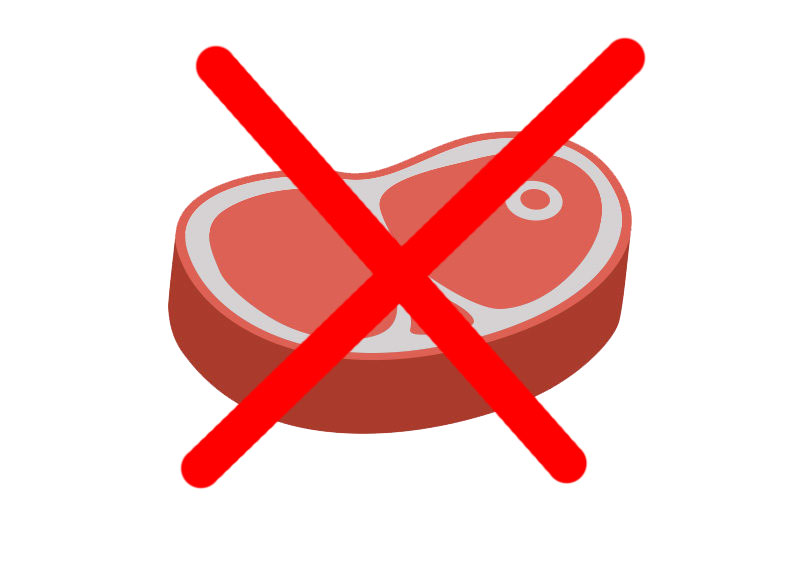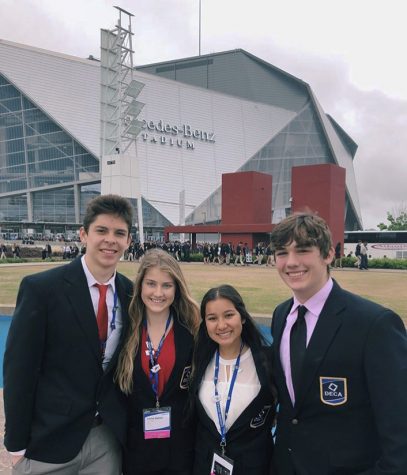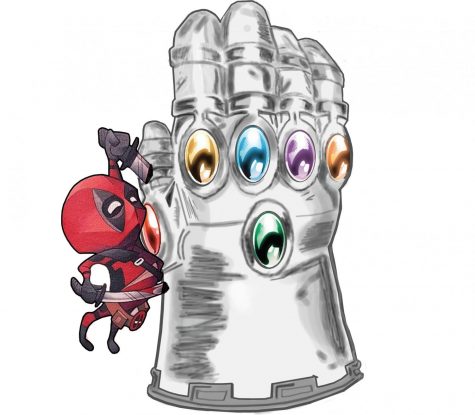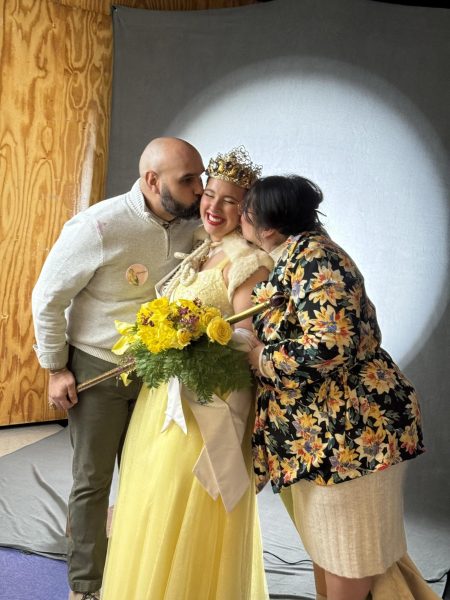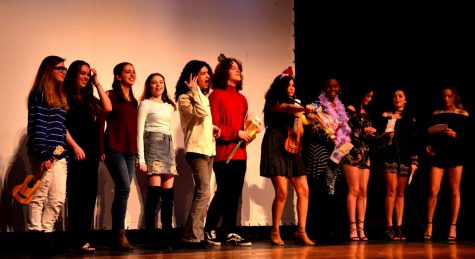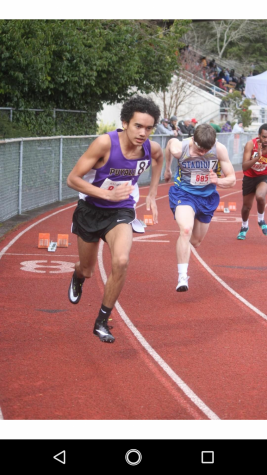To meat or not to meat
In a world that has become increasingly more aware of its impact on the Earth, more and more people are turning to less impactful diets.
According to a Top Trends in Prepared Foods report from last June, six percent of Americans are now vegan, meaning they do not consume any animal products.
While it may not seem like it, vegans and vegetarians are scattered throughout the community.
Among these people is junior Megan Cannon, who has been a vegan for five months. Cannon shares her reasons for becoming vegan.
“I decided to become a vegan for two reasons. One was my belief in animal rights, especially after seeing the behind the scenes of the meat and dairy industry. The other reason was I wanted to eat healthier and dairy and meat just made me feel sick, ” Cannon said.
Third-year and AP Spanish teacher Marla Boyd-Atkinson has been a vegetarian for the majority of her adult life. Boyd echoes Cannon’s disdain for the meat and dairy industry.
“As I got older and started reading more and more about the food supply system and in particular factory farming, I became more and more turned off by meat,” Boyd said. “Mostly because of what I learned about the effects large-scale factory farming has on the environment,
the chemicals and drugs that the animals are fed that then are passed on to the consumer and the horrible conditions that the animals live in at these facilities.”
According to both Cannon and Boyd, their transitions from a traditional diet were not as difficult as one may think.
“I was vegetarian for about three months prior and that transition was not difficult at all for me,” Cannon said.
For Boyd, the transition was a gradual process, taking place over the span of her life.
“Beef was the first meat to be completely eliminated from my diet. I would say I probably have not eaten beef since I was about 12 years old. As a young adult, I would prepare and eat some meat a few times a week, chicken breast being my go-to as it was the one that did not completely gross me out,” Boyd said.
Jasmyne Smith, junior at PHS, was a vegan for two years. She shared what the transition was like from her perspective.
“At first, not eating meat was super easy because once you see and watch the videos [behind the scenes of the meat and dairy industries] you are like ‘Ew that is disgusting, why would I do that to myself?’ But dairy was kind of harder because it is in everything,” Smith said.
Smith shared some of the difficulties of being a vegan in day-to-day life.
“It is hard to go to a restaurant and [say] ‘Okay, I need to ask for no cheese’ or if you want to hang out with your friends you either need to make sure you have something to eat or you just bring your own food,” Smith said.
Cannon holds some of the same thoughts as Smith does regarding the difficulty.
“The hardest thing I have experienced since becoming vegan is probably going out to eat with friends and family. While there are places that are accommodating with their menu and slight modifications, those options are limited. A majority of the time I would end up not eating anything,” Cannon said.
In addition to the difficulty of a diet transition, vegans face many misconceptions from the public. Smith shared how people would question her while being vegan.
“You get the same question all the time of ‘So when are you going to eat meat again?’ or ‘Why don’t you just try it?,’” Smith explained.
Boyd also shared the misconceptions she faces as a vegetarian.
“There are two common misconceptions. Number one is that you must be protein deficient. Some people think that you cannot possibly have a healthy diet if you do not eat
meat. Number two is that you must just eat salads. Trust me, I eat a lot more than salad,” Boyd said
Smith echoed facing the misconception that vegans cannot eat much.
“[People think] vegans just eat salad all day and that they are like hamsters. People were like ‘So do you just want a salad’ and I was like ‘No, I want food.’ I want the pizza, I want everything, just in a vegan form,” explained Smith
In response to these inquiries, Cannon says to approach veganism with an impartial judgement.
“I would tell these people to go into it with an open mind and that you can find substitutes for most non-vegan foods. There are also many things that you would think would not be vegan but they are. For example, pasta, bread and Oreos are all vegan,” Cannon said.
Also according to Smith, veganism is a preference the public should view open-mindedly.
“It is a personal choice and I think when people bash other people for [being a vegan] and say ‘Oh my god, you are a vegan?’ It is not that big of a deal. Or you are vegan and you bash other people for eating meat and dairy. People make it a bigger deal than it actually is,” Smith said.
Boyd shares the same beliefs as Cannon and Smith, that people should look at non-traditional diets in an open-minded way.
“As with a lot of things in life, I think it is important to be open minded. I do not judge people who eat meat and it does not bother me when other people eat meat. That is a choice. I choose not to. That does not mean that either one of us is right or wrong, we have just made different choices. It is kind of the same idea as when I talk to students about cultural differences,” Boyd explained. “You do not have to agree with someone in order to be able to understand their perspective. You can understand someone else’s choice without agreeing with it or choosing that for yourself.”
Despite these beliefs, Boyd says everyone should be educated on the effects their diets have on the planet.
“I do think it is important for everyone to be aware of the environmental consequences of large-scale factory farming and how we as consumers drive the demand and therefore have some accountability for those consequences. I am liking the trend I am seeing the last several years of communities eating local, farmers markets, meatless Mondays, etc. I think those are good things,” Boyd said.
According to Smith, being a vegan in the suburbs is difficult, as there is not many options or similar people to support you.
“I noticed when I would go to the grocery store, I would see a lot more vegan options, it was a growing thing. There is obviously progress but if you live in the middle of nowhere, you are probably not going to be vegan. If I lived in a place like LA, I would for sure guarantee I would still be vegan, they have a lot more options,” Smith explained.



